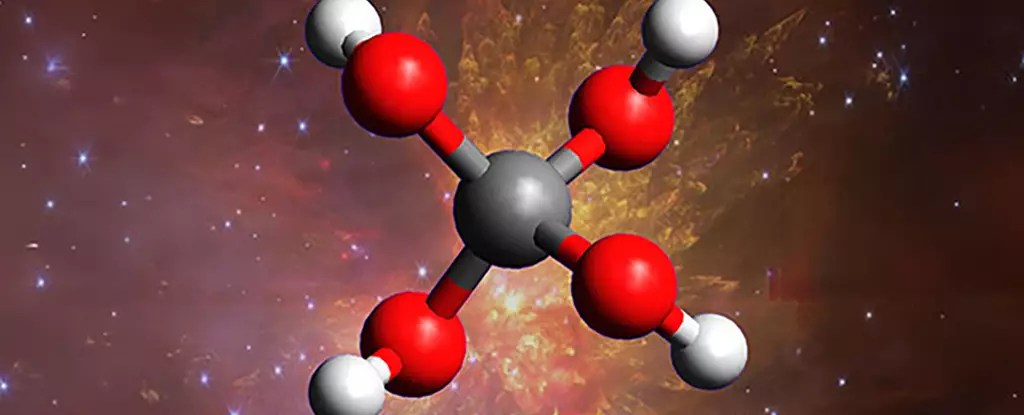In recent years, the narrative surrounding space chemistry has been painted with a veneer of inexorable progress and inevitable discovery. Yet, beneath this glossy surface lies a sobering reality: much of what we claim to understand about the universe’s chemical makeup is speculative at best. The recent synthesis of methanetetrol in laboratory conditions exemplifies this disconnect. While scientists hail this as a groundbreaking revelation—proof that molecules once considered impossible can form in the cosmos—the truth is that such experiments are mere shadows of the complex, often hostile, environments of deep space. We manipulate conditions in a lab to simulate interstellar environments, but these simulations fall short of capturing the chaotic, volatile nature of actual space. So, even as we celebrate this ‘discovery,’ we must confront the uncomfortable truth that our knowledge remains provisional, fragile, and often misguided.
Limitations of Our Tools and Assumptions
The excitement surrounding methanetetrol’s creation is palpable, but it masks a significant flaw: the molecule’s fleeting existence and the immense technical challenges in detecting it in natural space. The fact that it can only be generated under meticulously controlled conditions riddled with artificial radiation bombardments underscores its instability—something that greatly reduces the likelihood of its persistence beyond the confines of laboratory experiments. Such limitations cast doubt on whether we are even looking in the right places, or if we are simply overestimating the significance of molecules that have little bearing on the actual chemistry of space. The detection methods, reliant on catching ephemeral molecules before they dissociate, often border on wishful thinking rather than rigorous science. The stories we tell about the universe’s chemical richness are, in many ways, based on assumptions that have yet to be truly validated beyond Earth-bound experiments.
The Dangerous Promise of ‘Impossible’ Molecules
The enthusiasm for discovering bizarre molecules like methanetetrol often leans into a kind of chemical imperialism—an impulse to find alien life or cosmic processes through the lens of our terrestrial understanding. The presumption that finding such complex molecules could unlock the secrets of life’s origins is not only premature but potentially misguided. It’s tempting to interpret these molecules as hints at extraterrestrial life or as stepping stones toward understanding the universe’s capacity for self-organization. Yet, this scientific bravado can be dangerous; it risks turning limited data into grand narratives without sufficient empirical validation. What if our fixation on these ‘impossible’ molecules blinds us to simpler, more probable chemical processes that better explain star formation and cosmic evolution? The universe does not owe us a hand-holding lesson in chemistry; it simply exists, often in ways that are counterintuitive and beyond our comprehension.
The Implications for Humanity and Future Research
While some may see the discovery of methanetetrol as an exciting frontier, I argue it’s a stark reminder of how little we truly know and how easily our ambitions can outpace reality. The drive to identify such molecules in space might lead to overconfidence in our technological capabilities, encouraging a reckless optimism that we are close to unraveling the universe’s secrets. Yet, each breakthrough also exposes the gaping holes in our understanding—holes filled with assumptions, biases, and a persistent tendency to oversimplify. The push for detecting these fragile molecules practically borders on arrogance: believing that with enough technological muscle, we can unveil the cosmos’ deepest mysteries. Instead of accepting our limitations, we often oscillate between hubris and despair, never quite achieving the comprehensive understanding we crave. Scientific progress should not be measured solely by the discovery of ‘impossible’ molecules, but by our humility to recognize what remains unknown and the caution needed when interpreting the significance of each find.

